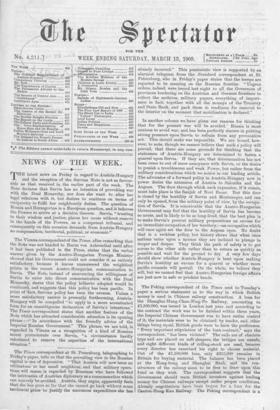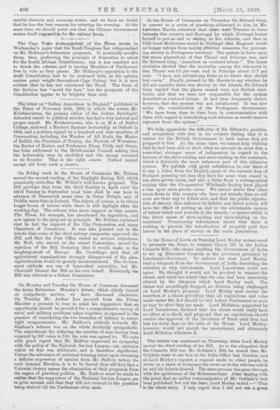The Peking correspondent of the Times sent to Tuesday's paper
a serious statement as to the way in which British money is used in Chinese railway construction. A loan for the Shanghai-Hang-Chau-Ning-Po Railway, amounting to 21,500,000, was issued in London last year, and according to the contract the work was to be finished within three years, the Imperial Chinese Government was to have entire control of it, the materials' were to be obtained by tender, and, other things being equal, British goods were to have the preference. "Every important stipulation of the loan-contract," says the correspondent, "has been violated." The' rails are of obsolete type and are placed on soft sleepers, the bridges are unsafe, and eight different kinds of rolling-stock are used, because every director has exercised his right to choose material. Out of the 21,500,000 loan, only, £355,000 remains in Britain for buying material. The balance has been placed at the Hong-kong and Shanghai Bank, and the con- structors of the railway seem to be free to draw upon this fund as they wish. The correspondent suggests that the Government should warn British investors against lending money for Chinese railways except under proper conditions. Already .negotiations have been begun for a loan for the Canton-Hang-Kau Railway. The Peking correspondent is a careful observer and accurate writer, and we have no doubt that he has the best reasons for uttering his warning. At the same time, we should point out that the Chinese Government makes itself responsible for the railway loans.







































